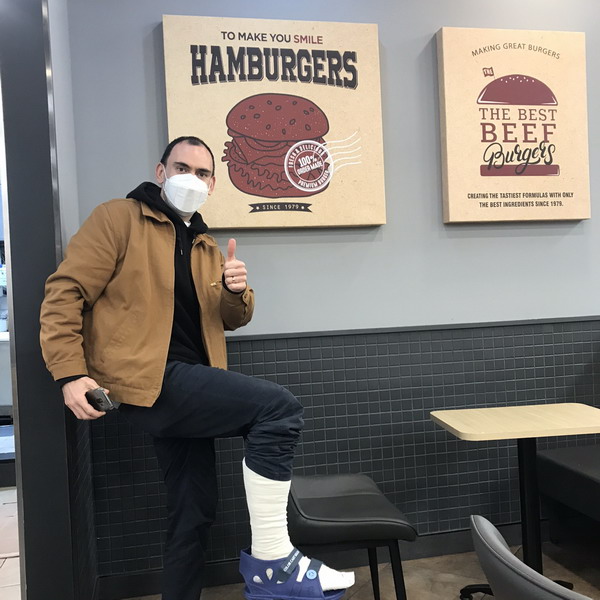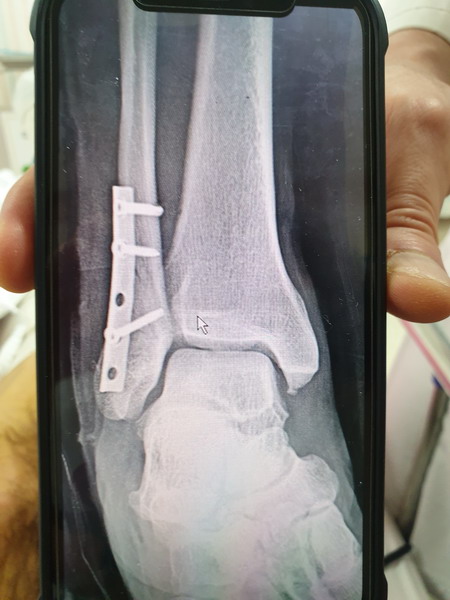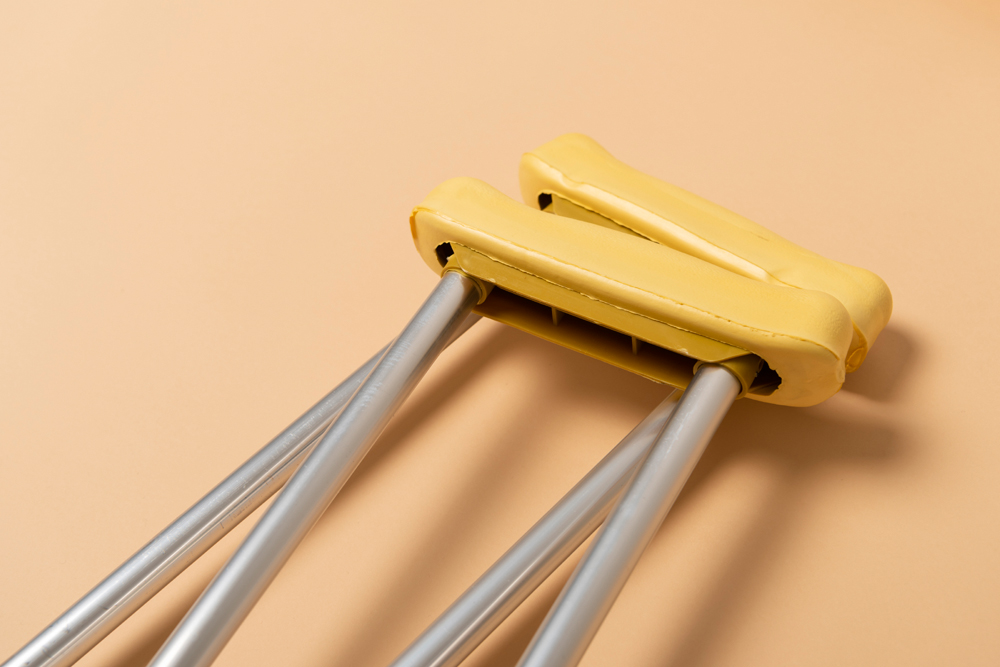Snap, Crackle, Pop: What to Expect If You Break a Bone in Korea
By William Urbanski.
Spring of 2021 started for me on a very positive note. Besides being able to finally go outside and play with my friends, I was happy to be starting an exciting new job. It seemed as if the stars had lined up and I had finally “caught a break.” Unfortunately, that figure of speech would take on a whole new meaning because, despite my good fortune, fate, my constant enemy, had other plans. On my first spring day trip away from Gwangju, I fractured my ankle and required immediate surgery.
The circumstances surrounding my injury are not important other than to say it was completely my fault, and I totally had it coming. My intention in writing this piece is neither to gain sympathy nor to discourage people from enjoying an active lifestyle, but to help inform others about what lies ahead if they too have to undergo a surgical operation in Korea.
The Deets
In medical terms, my injury was a displaced fracture of the lateral malleolus. The lateral malleolus is the bulbous bone on the outside of the ankle where the fibula meets the foot. Damaging it is among the most common ankle injuries. When I fell back on my foot, I heard and felt something “pop” but was surprised how much it actually did not hurt. It was clear that something was wrong though, which brings me to the first important takeaway of this article: If you hear a bone crack or pop, your very next stop should be the hospital. Sometimes fractures do not require surgery, but as mentioned above, my fracture was “displaced,” meaning the bone was no longer lining up properly. If I had left it, it would have healed improperly, leading to long-term problems.
The “doctor” at the first “hospital” I went to seemed more interested in growing a beard than in the condition of my foot and said he did not think surgery was necessary. He put me in a makeshift cast and sent me on my way. The severity of the fracture didn’t fully register so, like an idiot, I walked (read: hobbled) around on it for a couple of days until I finally went to a second clinic where I got some bad news: I needed surgery ASAP. Even though I believed the doctor, this was the point where I got a little suspicious of whether or not he was considering my best interests. He did not want to hear anything about my job or personal situation and insisted that I (a) have surgery right away and (b) stay in the hospital for a whole week to recover. Now, I am no medical professional but for a relatively simple surgery, a week-long hospital stay seemed excessive. That brings me to my second major point: You are entitled to another medical opinion, so go get one.
The final doctor I spoke to concurred that I needed surgery quickly, and he was also willing to listen and “negotiate” the length of my hospital stay, which in the end was four nights and three days. So, after the mandatory COVID test, I was admitted that very night and started on the road to recovery.

The Stay
Now even though my injury was relatively minor and common (there were at least three other people in my ward with similar injuries), there is really no such thing as a “minor surgery.” So, keep in mind that any patient that is going under the knife will have to undergo a battery of tests (including blood samples and lung capacity tests), interviews, and x-rays. Over my short stay, I got no fewer than ten needles stuck in me, not including the IV that I was hooked up to for a few days, which completely limited my mobility and was, in my opinion, the worst part of this whole affair.
In terms of where I stayed at the hospital, I shared a large room with about eight other patients and their families. This is a major difference between the Korean and Canadian system: In Korea, a family member is usually allowed to stay in the room with you overnight. My area was private enough and the food was pretty not bad, except for the breakfast fish, which is something I refused solely on the principle that fish is not and never will be a breakfast food.
The surgery itself was fine and the only time I felt pain was immediately after I woke up. After I mentioned this to the nurse, she pumped me full of some wonder chemical that made me feel dizzy and pass out for a few hours. One other thing I would like to mention is that getting anesthesia is gnarly, and I had a number of sores inside my mouth from where they were holding a mask over my face while I was out. When all was said and done, I got a plate with three screws put in my ankle, which was decorated with nine big stitches. The National Health Insurance Plan covered a lot of the expense, but I still had to pay a tidy sum out of pocket when all was said and done. Fortunately, I do carry supplemental insurance, which will reimburse a large part of that. (The whole issue of supplemental insurance is a topic I would like to cover in a later article.)
After I was discharged, there was still the matter of replacing my bandages every few days, getting my stitches out, and getting a hard cast. This all brings me to the next major point: If you require any sort of surgery, get prepared for a process, and not a transaction.

Crutch Life
If you do break an ankle, you can expect to be on crutches for roughly six weeks. Having never had to use crutches before, there are a couple of things that quickly became painfully evident and required major adjustments to my lifestyle. The first is that, no matter how strong you are, your “range,” which is to say, how far you can go on crutches before getting completely exhausted, will be very limited. As a rough estimate, I would say about five-hundred meters is the limit before fatigue kicks in. Also, it takes about twice as long to do anything, including getting dressed, eating, and showering. In terms of getting around, buses were no longer an option because even though I am in pretty good physical condition, it was just too difficult and rough. Finally, the doctor will probably use the term “no weight bearing” which, in layman’s terms, means “do not put your foot on the ground.” “No weight bearing” is probably the most important part because the bone has to set and heal, and a relatively small amount of pressure can really muck it up.
By the time this article comes out, I should be out of a cast and off crutches but will still be looking at a number of months before I can return to my regular activities. Overall, my hospital experience was very good, and I am very thankful for the excellent and hardworking doctors, nurses, and hospital staff who took care of me. Although getting hurt is a bummer, I have tried to see this as an opportunity to focus on other areas in life that are always in need of attention.
I would like to leave you with a final thought: Having an active and physical lifestyle is one of the best and most rewarding things in the world, but if you get hurt, a surgery has a special way of encapsulating and affecting all other aspects of your life, including your job and family. So, get out there, enjoy your life, and be physical – but remember to check yourself before you wreck yourself.
The Author
William Urbanski is the managing editor of the Gwangju News and a proud owner of a new electric bike, which is very handy since he has not been able to walk lately. He also recently learned the value of holding the door open for each and every injured person he sees.
Instagram: @will_il_gatto



